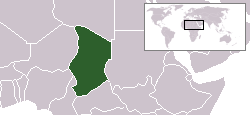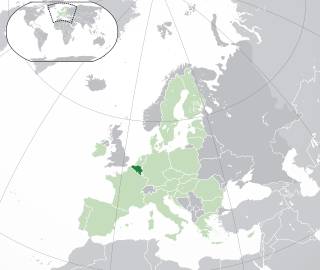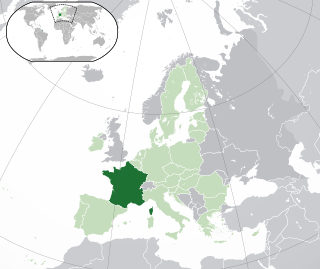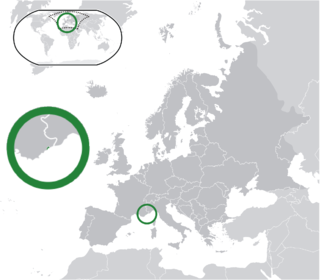Related Research Articles
Same-sex marriage is the marriage of two people of the same sex or gender, entered into in a civil or religious ceremony. There are records of same-sex marriage dating back to the first century. In the modern era, same-sex marriage started being legalized at the beginning of the 21st century. Today, it is available in 28 countries.
Same-sex marriage in Belgium has been legal since 1 June 2003. A bill for legalization was passed by the Senate on 28 November 2002, and by the Chamber of Representatives on 30 January 2003. It entered into force on 1 June, after King Albert II gave his assent. Belgium became the second country in the world to legalise same-sex marriage, after the Netherlands. "Statutory cohabitation", open to any two legally consenting cohabiting persons, has been possible since 1 January 2000.
Same-sex marriage in France has been legal since 18 May 2013. It became the thirteenth country worldwide to allow same-sex couples to marry. The legislation applies to metropolitan France as well as to the French overseas departments and territories.
In France, a civil solidarity pact, commonly known as a PACS, is a contractual form of civil union between two adults for organising their joint life. It brings rights and responsibilities, but less so than marriage. The PACS was voted by the French Parliament in October 1999, largely to offer some legal status to same-sex couples. In 2012, 94% of PACS were nonetheless between opposite-sex couples.

Same-sex marriage in Quebec has been legal since March 19, 2004. Quebec became the third Canadian province and the fifth jurisdiction in the world to open marriage to same-sex couples.

Same-sex marriage in New Brunswick has been legal since July 4, 2005, when the province began issuing marriage licences to same-sex couples pursuant to a June 23 court ruling.
Switzerland has allowed registered partnerships for same-sex couples since 1 January 2007, after a 2005 referendum.
Same-sex marriage in Luxembourg has been legal since 1 January 2015. A bill for the legalisation of such marriages was enacted by the Chamber of Deputies on 18 June 2014. Partnerships have also been available in Luxembourg since 2004.

Lesbian, gay, bisexual, and transgender (LGBT) persons in Chad may face legal challenges not experienced by non-LGBT residents. Both male and female same-sex sexual activity is illegal in the country. Before the new penal code took effect in August 2017, homosexual activity between adults had never been criminalised. There is no legal protection against discrimination based on sexual orientation and gender identity.
Same-sex marriage in Portugal has been legal since 5 June 2010. The Government of Prime Minister José Sócrates introduced a bill for legalization in December 2009; it was passed by the Assembly of the Republic in February 2010. The bill was declared legally valid by the Portuguese Constitutional Court in April 2010. On 17 May 2010, President Aníbal Cavaco Silva ratified the law and Portugal became the sixth country in Europe and the eighth country in the world to allow same-sex marriage nationwide. The law was published in the official journal, Diário da República, on 31 May 2010 and became effective on 5 June 2010. The country has also recognized same-sex de facto unions since 2001.

Lesbian, gay, bisexual, transgender (LGBT) rights in Belgium are seen as some of the most progressive in Europe and in the world. Same-sex sexual activity was legalised in 1795, with an equal age of consent, except from 1965 until 1985. After granting same-sex couples domestic partnership benefits in 2000, Belgium became the second country in the world to legalise same-sex marriage in 2003. Same-sex adoption was fully legalised in 2006 and was equalised with that of heterosexual adoption. Lesbian couples can get access to IVF as well. Discrimination protections based on sexual orientation in employment, housing, and public and private accommodations were enacted in 2003 and on gender identity and expression in 2014. Transgender people have been allowed to change their legal gender since 2007, though under certain circumstances, which were repealed in 2018.

Lesbian, gay, bisexual, transgender (LGBT) rights in France have been seen as traditionally liberal. Although same-sex sexual activity was a capital crime that often resulted in the death penalty during the Ancien Régime, all sodomy laws were repealed in 1791 during the French Revolution. However, a lesser known indecent exposure law that often targeted homosexuals was introduced in 1960 before being repealed twenty years later.

Lesbian, gay, bisexual and transgender (LGBT) people in Luxembourg enjoy the same rights as non-LGBT people. The country is tolerant of homosexuality, and it is largely respected and accepted. Partnerships, which grant many of the benefits of marriage, are recognised. In June 2014, the Luxembourgish Parliament passed a law enabling same-sex marriage and adoption rights, which took effect on 1 January 2015. A large majority of Luxembourgers support same-sex marriage. Additionally, discrimination on the basis of sexual orientation and "change of sex" is outlawed.

Lesbian, gay, bisexual, and transgender (LGBT) persons in Monaco may face legal challenges not experienced by non-LGBT residents. Both male and female same-sex sexual activity are legal in Monaco. However, same-sex couples and households headed by same-sex couples are not eligible for the same legal protections available to opposite-sex married couples.

Lesbian, gay, bisexual, transgender (LGBT) rights in Switzerland are relatively progressive by European standards, although LGBT people lack full legal equality. Its history is one of liberalisation at an increasing pace since the 1940s, in parallel to the legal situation in Europe and the Western world more generally. Despite this, same-sex marriage, full joint adoption and IVF access remain unavailable in Switzerland as of 2020.

Lesbian, gay, bisexual, transgender (LGBT) persons in Burundi face legal issues not experienced by non-LGBT citizens. Burundi criminalises same-sex sexual activity by both men and women, with a penalty up to two years in prison and a fine. LGBT persons are regularly prosecuted by the government and additionally face stigmatisation among the broader population.
Same-sex relationships are currently not recognised in the microstate of Monaco. On 4 December 2019, the National Council passed a bill establishing "cohabitation agreements", which offer both same-sex and opposite-sex couples who enter them limited rights in the areas of inheritance and property. The law will take effect on 27 June 2020.

The law opening marriage to same-sex couples, no. 2013-404 is a French law which, since 18 May 2013, grants same-sex couples the right to marry and jointly adopt children.
Erwann Binet is a French politician. He was first elected to the National Assembly in the 2012 election, and served as the deputy for the eighth circonscription of Isère on the Socialist Party ticket, succeeding Jacques Remiller to the post. He was appointed rapporteur for the Law Commission for the passage of Bill 344. He lost the 2017 election to Caroline Abadie of REM.

[[File:Same-sex marriage map Oceania.svg|thumb||300px|Recognition of same-sex relationships in Oceania {{legend-shell|lang=en|title=Laws regarding same-sex sexuality in Oceania|